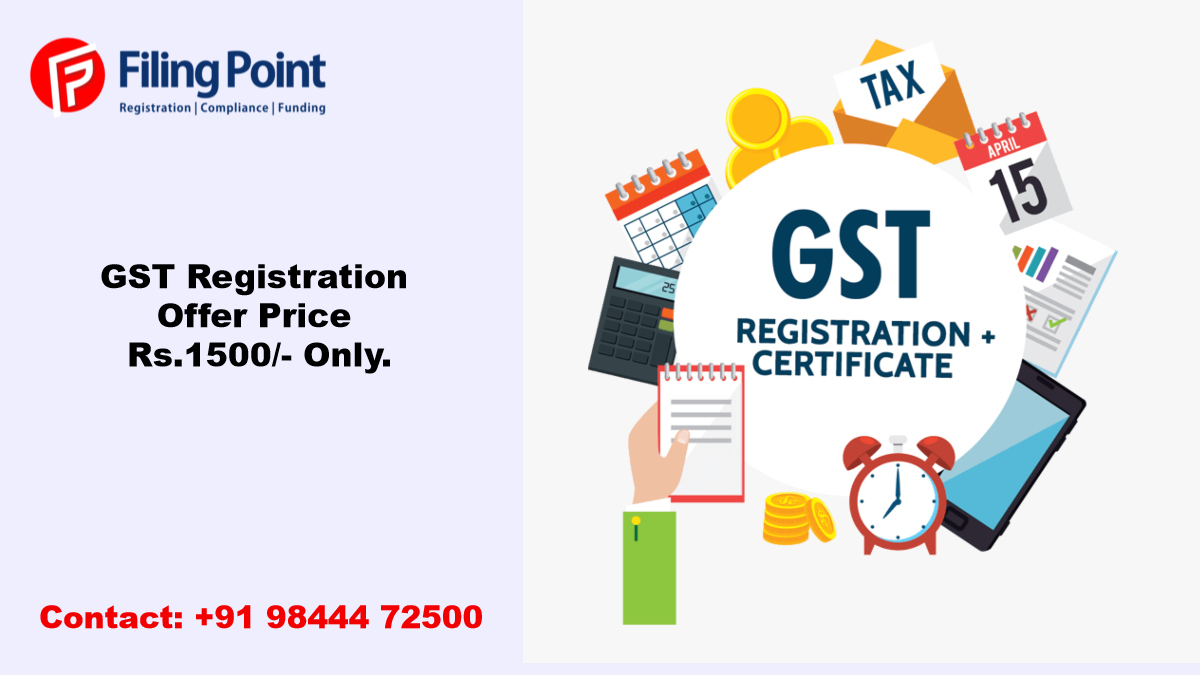Singapore GST Registration: What You Need to Know Prior To Using
Singapore GST Registration: What You Need to Know Prior To Using
Blog Article
Understanding GST Registration: Important Actions to Make Certain Regulatory Compliance and Company Development
Browsing the world of Goods and Solutions Tax Obligation (GST) enrollment can be a pivotal step for services intending to keep conformity and foster development. The intricate process of registering for GST demands a keen understanding of the crucial actions involved, from comprehending the basic concepts of GST to meticulously preparing the needed documents. Nevertheless, past simply checking off the governing checkboxes, mastering GST registration opens up a realm of possibilities for companies to tactically take advantage of this tax obligation structure to thrust their growth. Comprehending the subtleties of GST registration is not merely an administrative need yet a strategic move that can shape the trajectory of a business towards sustainable success.
Comprehending GST Essentials
Recognizing the essentials of Goods and Solutions Tax (GST) is crucial for companies to browse the intricacies of tax conformity and financial management properly. GST is a value-added tax obligation levied on the supply of products and solutions in India, intending to produce a unified tax obligation system across the country. Singapore GST Registration. Under GST, services require to sign up and obtain a special GSTIN (Item and Services Tax Identification Number) to be compliant with the legislation

Preparing Necessary Files
To ensure conformity with GST enrollment demands, services should gather and organize the essential records for the application process efficiently. The key records commonly required for GST registration include evidence of service registration or incorporation, Frying pan card of the organization, address and identity evidence of promoters, pictures, bank declarations, and proof of address of the area of company.
Organizing these documents in an organized manner can simplify the application procedure and demonstrate business's commitment to governing compliance. Services should preserve both physical and electronic duplicates of these records for easy accessibility and referral. By preparing the needed records vigilantly, organizations can expedite their GST registration procedure and concentrate on their core operations with the assurance of regulative conformity.
Online Enrollment Process
Begin the GST enrollment procedure by browsing to the official online portal assigned for service enrollment. The GSTN (Item and Services Tax Network) website is the main system where organizations can initiate their GST registration process. Singapore GST Registration. Upon accessing the portal, you will be needed to supply crucial information such as your Frying Pan (Irreversible Account Number), mobile number, and e-mail address to develop an account. Once the account is set up, you can wage filling in the GST registration application form by entering the required company info, including company address, kind, and turn over information.

Compliance and Reporting Obligations
Upon successful enrollment on the GSTN portal and conclusion of the required paperwork, companies have to stick to rigid conformity and reporting responsibilities to ensure regulative adherence and operational openness. Conformity needs under GST required timely and accurate filing of different returns, such as GSTR-1 for outside products, GSTR-3B for month-to-month recap returns, and annual returns like GSTR-9. Additionally, companies need to integrate their sales and purchase data through GSTR-2A and GSTR-2B to case input use this link tax obligation debts appropriately.
Preserving proper documents of billings, accounting papers, and other pertinent data is important for GST conformity. Routine audits and analyses by tax obligation authorities require businesses to have careful documentation and reporting systems in position. Any inconsistencies or non-compliance can result in fines, fines, or even suspension of GST enrollment.
To streamline compliance processes, organizations can take advantage of GST compliance software program that automates return filing, settlement, and conformity monitoring. Staying upgraded with regulatory modifications and seeking more information professional suggestions when required can additionally boost compliance efforts and guarantee smooth operations within the GST structure.
Leveraging GST for Organization Growth
One key advantage of GST is the input tax obligation credit scores system, which allows businesses to assert credit scores for tax obligations paid on inputs. In addition, GST advertises openness and liability in the tax obligation system, which can assist organizations develop trust fund with customers and partners.
Furthermore, GST enrollment can also open up brand-new markets for organizations. In significance, leveraging GST for organization growth includes tactical preparation, reliable conformity, and a forward-looking method to monetary administration.
Final Thought
In conclusion, understanding GST registration is vital for making sure regulatory compliance and assisting in organization development. By comprehending the essentials of GST, preparing essential papers, finishing the online registration process, and fulfilling compliance and reporting commitments, businesses can leverage GST to their advantage. It is necessary for organizations to stick to the policies and use GST as a tool for expanding their procedures and staying competitive in the marketplace.
Browsing the world of Item and Provider Tax (GST) registration can be a critical step for businesses aiming to preserve conformity and foster growth. The vital documents normally required for GST read more registration include evidence of organization enrollment or consolidation, Frying pan card of the company, address and identity proofs of promoters, pictures, financial institution statements, and proof of address of the area of business.Begin the GST enrollment procedure by navigating to the official online website assigned for service enrollment. When the account is set up, you can proceed with filling up out the GST enrollment application form by going into the required organization details, including business address, kind, and turnover details.
By understanding the fundamentals of GST, preparing essential documents, completing the online registration process, and satisfying conformity and reporting commitments, services can utilize GST to their advantage.
Report this page